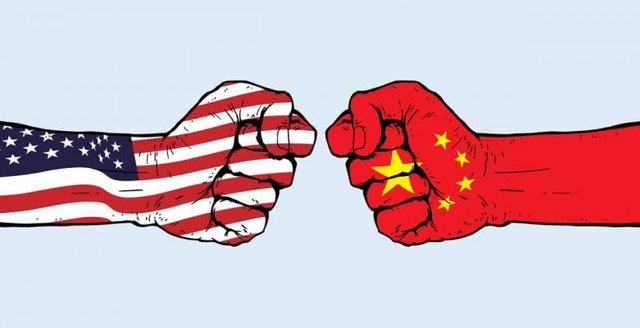The Trade War is Being Used to Further Thwart Web Privacy

As the trade war intensifies, China and the White House have begun to steadily levy tariffs against each other, with no end on the horizon. This has led to some narratives regarding which nation has the upper hand in the war of wills, with some suggesting that China, because they are notorious for unabashedly collecting data from Chinese internet users and disregarding patent protections to develop their systems, has created a more robust AI network than their American counterparts.
While this may be true, let’s be honest: the American tech sector has by no means been a protector of user privacy, not by any means. The surreptitious collection of user data for the express purpose of creating more capable artificial intelligence and machine learning algorithms is far from a uniquely Chinese phenomenon.
But, the narrative that China has a couple legs up on the American tech sector, and that this advantage will be used as significant leverage to emerge victorious in the trade war, is certainly being pushed.
From this narrative arises a clear implication: the American tech giants should be permitted to have access to more user data in the name of winning the trade war. The use of a Trump-created policy to further their own data stores is the least bit ironic for a notoriously anti-Trump tech sector, but that seems to be what is happening.
Mark Zuckerberg has called for the establishment of privacy “carve-outs” in the name of competing with China. You know, like being able to recognize your face.
“And I think that there’s a balance that’s extremely important to strike here where you obtain special consent for sensitive features like facial recognition. But don’t — but that we still need to make it so that American companies can innovate in those areas.
“Or else we’re going to fall behind Chinese competitors and others around the world who have different regimes for different, new features like that.” (Tech Crunch)
It’s true that Chinese technology company Alibaba helped the government create a robust facial recognition system that is not insignificant in the steady degradation of Chinese citizens’ most basic privacies. But, why is China’s monitoring of its own citizens something that the United States needs in order to compete with China in a trade war? And, why is Alibaba – essentially a contractor for an oppressive government – even an implicit model for how America’s largest tech companies are speaking about which exceptions to privacy barriers should be made?
Others are pushing the basic narrative behind these assertions: data is “fuel” for AI, so we must be able to collect more of it, period. “AI is run on data as fuel and China has so much more data than any other country,” President of Google China Kai-Fu Lee says. But Lee takes the odd stance that Chinese people have willingly given up their privacy to strengthen the nation’s massive data collection machine, which is now used to issue them a “social credit score” and track them virtually anywhere they go.
As if they had a choice…
Keep in mind that Lee, who is clearly advocating for a significant ramping up of the data that is collected about Americans in the name of competition, is doing so as the head of Google China, which gives us a telling window into who is pushing for this increased data collection. It’s the tech companies, who don’t have a particular stake in winning the trade war – what is a few farmers’ jobs lost to Google? – but do have a stake in lowering barriers to data collection in a legal manner. More data collection is a fundamental benefit to Google, and most other tech giants’, bottom lines.
Even if that means using the trade war as the basis for lowering those barriers to collection, they will advocate for it. But that doesn’t mean we should assume the purported rationale for more data collection is genuine.
Let’s not get confused on what the purpose of the trade war is. Sure, it’s supposed to be a means to deter China from stealing American intellectual property for their own use. But that’s a far different message from the trade war than the one being pushed with respect to artificial intelligence: that in order to “compete” with China, we have to adopt practices more similar to theirs, like further degrading privacy practices of the internet citizens.
Read More: https://bit.ly/2KZEDKC
narratives regarding
capable artificial intelligence